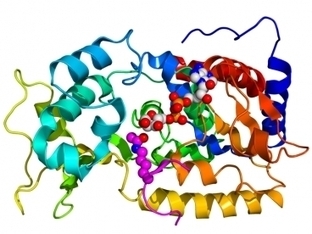Healthy cells don't just happen. As they grow and divide, they need checks and balances to ensure they function properly while adapting to changing conditions around them.
Researchers studying a set of proteins that regulate physiology, caloric restriction and aging have discovered another important role that one of them plays. SIRT4, one of seven sirtuin proteins, is known for controlling fuel usage from its post in the mitochondria, the cell's energy source. It responds to stressful changes in the availability of nutrients for the cell.



 Your new post is loading...
Your new post is loading...











This is an interesting article on the SIRT4 gene. Resveratrol plays an important part in activating these cells longevity properties.